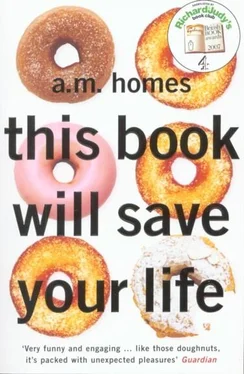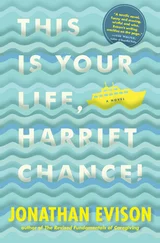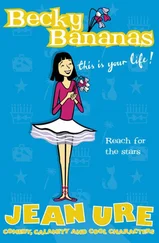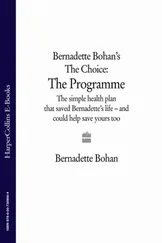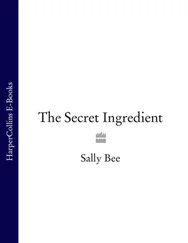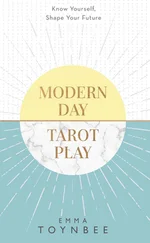"It's one of the secret ingredients," Anhil says, "but how can it stay a secret when you ask everyone if it's OK?"
A breeze blows through the house, fanning the flames of Nic's fire, brushing across the back of Richard's neck; he shivers, buttons the top of his collar. They sit at the long dining-room table.
"There is something funny about this table," Cynthia says. "It looks like stone but weighs nothing."
"It's a prop," Nic says. "You can buy things like this all the time, discarded props. It looks like something but it's nothing."
Cynthia holds a candle under the table. "I think it's Styrofoam," she says.
"Be careful," Richard says. "It's probably flammable."
Lipi serves the stew. "There are condoms on the table," she says.
Anhil and his brother laugh. "She means things that go with the stew — tomatoes, dill sauce, in the little bowls."
"Yes, that's what I said — condoms."
And they laugh again. "I'm sorry," Anhil says, still laughing, "but you are very funny."
"Condiments," Cynthia says.
"What's the difference," Lipi says, annoyed, "condoms, condom mints."
"Where did you meet?" Nic asks Anhil and Lipi.
"We lived in the same town. I fell in love with Lipi when I was eight years old. I told nobody, I didn't want anyone to say no. Her family was better than mine, and then they had a fall and I got Lipi."
"My sister's husband left her; this is very bad," Lipi said. "In America people leave each other everywhere and no one cares, but in our country it is a very big deal. They decided that the problem is my sister; some friends of her husband come and kill her. I was there — hiding in the closet, afraid they might kill me too. I know who they are."
"It was my job to protect Lipi; we left in the middle of the night."
"I cannot go back."
"The stew is delicious," Cynthia says. "A perfect combination — olives, chickpeas."
"Thank you," Lipi says.
When the wine bottle is empty, Nic runs back to his house and comes back with more.
The telephone rings.
"Is this Richard Novak?"
"Yes, it is."
"It's Priscilla from the Today show in New York with a few questions. Have you spoken to the young woman since the incident?"
"No."
"What were you thinking when you rescued her?"
"I wasn't really thinking, I was kind of daydreaming."
"There are reports that you've done this sort of thing before."
"Not really."
"You got a horse out of a hole?"
"I don't mean to cut you off, but we're in the middle of dinner."
"Not a problem; a producer will call you back to go over details about your appearance on the show."
"Who is it?" Nic asks.
" Today show," Richard says, covering the phone.
Nic takes the phone from Richard. "Thanks, but no thanks," he says, hanging up.
After dinner, Nic lights an enormous joint and passes it around. Everyone except Lipi smokes.
"I don't get it," Richard says. "You drink, you smoke, and you take intravenous vitamins to keep yourself healthy — seems like a contradiction."
"Counterbalance," Nic says, inhaling. "It's all about balance, and in order to balance you have to have counterbalance."
"Do you feel OK?" Cynthia asks Richard.
"I'm fine."
"Do you feel like a Superman?" Anhil asks. "With X-ray vision?"
Richard shakes his head. Frankly, he feels fragile, broken, like he has stepped so far outside himself that he's now a little unfamiliar even to himself.
The joint comes around again. It's been years since he got stoned. His head feels like cotton candy — light, airy.
For dessert they open the box of donuts, and Anhil goes into detail explaining the essential qualities of each donut. "This is the newest one, I call it Early Riser. It's a very high donut," he says, laughing. "That's funny, high donut. Right now, I am a high donut," he says.
Lipi shakes her head. "When you smoke you lose your intelligence."
Richard meanwhile is licking the glaze off a donut, mesmerized by the sugar coating, like shards of glass dissolving on his tongue.
"I'm going downhill," Nic says, "I'm not going to be able to hold it, I'm breaking up, I'm breaking up." He inhales.
"I'm stoned," Cynthia announces bluntly. "Did you grow up in L.A.?" she asks Nic.
"Schenectady."
"How'd you end up here?"
"You really want to know?"
"Yes."
"I was sixteen, my brother was twenty — he was in the army. I was home; it was afternoon. My mother saw a car pull up and park at the curb. She opened the door before the man even got out. 'My husband's not home,' she yelled.
"The man stood there for a moment. 'May I come in?'
" 'Call your father and tell him to come home,' she told me. She didn't want to hear it alone.
"I went into the kitchen and called my father. By the time he got there, my mother was chatting it up with the man, telling him stories about Tom and our family, and he just listened and drank his cup of coffee and never said anything that would give it away. Why? Out of decency? Was he sparing her or making it worse? And what was I doing? Hiding in the kitchen, afraid to go in there — afraid I might cry. My father got home, breathless and pale. He sat on the sofa without taking his coat off.
"I don't remember if they cried, or if my mother was too busy thanking the man for coming, for waiting for my father, for bringing the letter. My father was asking questions about 'the arrangements' and the man gave him a business card with a number to call.
"After he left, my father went outside and raked leaves for hours. Everything froze in a kind of darkness that I'd never dreamed possible. And I kept thinking that if it had happened to me they would have been fine, but because it was Tom it was worse. Behind their backs, I wore his clothes — socks, T-shirts — maybe my mother knew, maybe she didn't. I was terrified of being caught as some kind of memory thief. But I needed it — I needed to feel him, to remember him, to believe I was like him.
"When I left Schenectady, California seemed as far away as the moon, and when I got here, I couldn't go back, not until I'd made sense of it. And by the time I'd done that, a different kind of time had passed — I was no longer the same person, I was a veteran of my own life."
They sit in silence. There is nothing to say.
Nic goes to the window. "The ocean looks like ink, like so much spilt black ink."
They all sit a while longer, and then Anhil, his brother, and Lipi pack up the rice cooker, the empty stew pot.
"I put the leftovers in the refrigerator, for tomorrow," Lipi says.
"Thank you," Richard says. "I'm so glad you came, so glad to meet you."
"I love you," Cynthia says, to no one in particular.
"This was my dream," Anhil says, "to be invited to a famous house in Malibu and to have my wife with me. Next time everyone comes to our house — it's not as poor as you think." Anhil hugs him. "Take care, rescue ranger."
"The fire can burn out without me," Nic says, picking up the half-empty bottle of wine and heading for the door.
RICHARD turns around and Cynthia is asleep on the sofa. He stands listening to the waves lapping at the edge of the land, and then slowly closes the sliding glass door.
In the bedroom, he undresses. Bruises are starting to show: large uneven areas of green and purple on his arms, his legs, his side. He puts on sweats and goes to the computer to check his accounts. It's always comforting to check the money.
He sends his brother an e-mail: "Helped a woman taken hostage out of the trunk of a car today. Can't sleep — looking forward to the boys arriving. BTW (by the way) — did you really almost win a Nobel?" He deletes the line about the Nobel and hits "send." The boys are a day or two from arriving, and it occurs to Richard that no one knows where he is — Ben doesn't, his brother doesn't, his ex-wife doesn't. He calls the answering machine back at the sinking house and plays his messages.
Читать дальше
